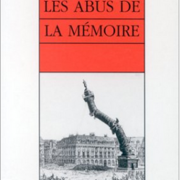
Lusia A. Zaitseva
TOO FAR AND BACK AGAIN
The Text and the Making of the Medieval Hero in La Chanson de Roland, Le Charroi de Nîmes, and La Vie de Saint Alexis
Abstract:
Examining La Chanson de Roland , Le Charroi de Nîmes, and La Vie de Saint Alexis, I argue that the oftentimes contradictory and ambivalent nature of these texts toward their heroes can be better understood through the triangular structure of desire. Drawing on the work of Andrew Cowell and Peter Haidu, among others, I hope to show how sufficient attention has not yet been drawn to the fundamentally ambivalent attitudes that epic texts sometimes have toward their professed heroes. I also hope to shed light on the nature of the text as a mechanism for neutralizing, to an extent, the dangers of this ambiguity. Specifically, the three texts examined, fueled by a desire for the missing third—God—present a hero who tests the barrier between Self and Other. This barrier testing, a process necessary for the cohesion of the Self, results in a going-too-far that threatens the very social cohesion it textually seeks to build. This threat is mitigated within the text by making the hero pass through the figure of God, by means of canonization. The tensions that this process gives rise to are seen in the mechanism for reincorporation of the hero back into the society whose cohesion he threatens: that is to say, the mechanism is the text.
Lusia is a second-year Ph.D. candidate in the Department of Comparative Literature, where in addition to French she studies Russian, Hindi, and Urdu literature. She focuses primarily on post-colonial literature, as well as poetry more broadly, and plans to write a dissertation that centers on trauma studies in a transnational context.
Posted February 2, 2013
| zaitsevatoofarandback.pdf | 324 KB |
